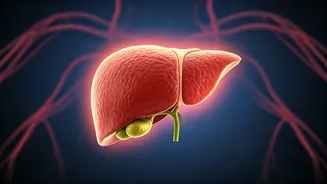Fatty Liver Unveiled
Non-Alcoholic Fatty Liver Disease (NAFLD) is characterized by an excessive buildup of fat in the liver, not caused by alcohol consumption. This condition
can lead to various complications, including liver inflammation and potential progression to more severe stages like cirrhosis. Recognizing the significance of lifestyle choices, particularly exercise, becomes essential. Exercise plays a critical role in addressing the condition, enhancing liver function, and averting the potential for more serious health issues. The key is to understand how exercise can be integrated effectively into a routine for optimal liver health benefits.
Exercise's Healing Power
Exercise significantly impacts liver health by reducing fat accumulation and improving insulin sensitivity. Physical activity helps lower liver fat content, a primary indicator of NAFLD severity. Regular workouts also enhance the body's response to insulin, reducing the risk of developing insulin resistance, which is closely linked to NAFLD. Incorporating both aerobic and resistance exercises into your routine yields a greater impact on your health, contributing to a comprehensive strategy for managing NAFLD. This includes increasing energy expenditure and managing weight, both of which are crucial factors in combating fatty liver disease.
Optimal Exercise Regimen
For those with NAFLD, combining aerobic and resistance exercises is the most effective approach. Aerobic exercises like brisk walking, jogging, or cycling should be done for at least 150 minutes per week, spread across multiple sessions. Resistance training, which involves using weights or bodyweight exercises, should be performed two to three times per week. This combination not only burns calories but also promotes muscle growth, which increases metabolism and aids in fat reduction. Consistent exercise, coupled with dietary adjustments, significantly improves liver health and overall well-being. Focusing on a balanced exercise routine supports both physical and metabolic health.
Lifestyle Enhancement Tips
In addition to regular exercise, several lifestyle modifications can boost the positive effects. Maintaining a balanced diet rich in fruits, vegetables, and whole grains is vital. Limiting processed foods, sugary drinks, and excessive saturated fats aids in reducing liver fat. Managing weight through a combination of diet and exercise is crucial, as even a small percentage of weight loss can improve liver health. Staying hydrated and avoiding alcohol are also essential steps. Lifestyle changes complement exercise, creating a holistic approach that can significantly improve the outcomes and effectiveness of physical activity in managing NAFLD.














